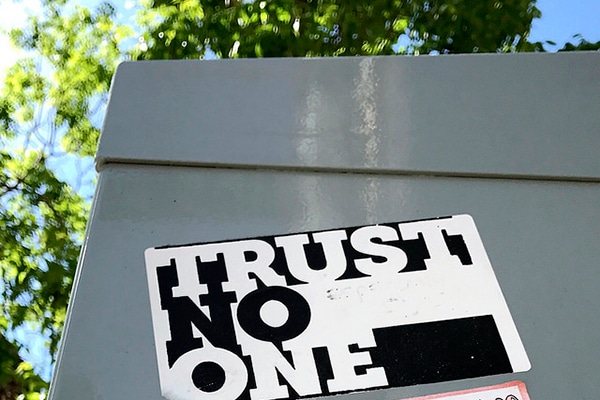
Distrust permeates our societies: distrust in governments, in parliaments, in the news media, and even corporations have lost ground in this respect. Trust in senior executives has fallen by 12 percentage points in one year, to 37%, mainly because of the way businesses are perceived and how they treat their employees.
This crisis of trust, which has become more acute in recent times, feeds populist movements of various stripes as well as demands for strong and even dictatorial leadership and direct democracy at the expense of the representative kind. It may be related to the effects of the economic crisis, but given that it has become more pronounced at a time when economies are recovering, its roots seem to go deeper. The consequences of this collapse in trust are worrying, because trust is one of the basic factors enabling societies to run in a smooth and stable way, especially –although not uniquely– in democracies.
The Edelman Trust Barometer, which has been published annually since 2012, recorded a sharp decline in trust in 2017. Two thirds of the 28 countries investigated fall into the category of ‘distrusters’, with levels of trust in governments, the news media, businesses and even NGOs below 50%. All this is accompanied by a growing (50%) rejection of free trade. Donald Trump is not unique in this respect. And worries about the future –the crisis of the idea of progress– are on the increase, despite the fact that we are living through one of the most peaceful and prosperous eras ever recorded. Corruption and globalisation constitute people’s two fundamental concerns, but they are also worried about the speed of the change they are witnessing.
Levels of political participation, however, which some see as the solution, have not fallen: this year there was a 77.7% turnout in the first round of the French presidential elections (although only 48.7% in the subsequent legislative elections), 76.2% in the German election and 67.6% in the recent Austrian election. The credibility of political leaders has, nevertheless, declined, as has that of the so-called Fourth Estate: 60% of those surveyed have more trust in what they find through Google than what they may read by a journalist in a recognised news outlet. Social media create bubbles and echo chambers: 53% of respondents do not listen to people or organisations with whom they tend to disagree.
There are differences in the general trust index between the ‘informed public’ (where Spain shows a 57% level of trust, compared with an overall level of 60%), and the ‘mass population’ (41% level of trust in Spain compared, with 45% overall). It is striking that general trust is higher in India, Indonesia and China, all with economies in expansion. And although it is not included in this survey, mistrust between governments and the governed is also one of the fundamental problems facing the Arab world, where there are various pressure cookers showing signs of strain.
According to the Edelman research, trust in international organisations, which might serve as substitutes, is not growing either. However, the European Commission’s latest Eurobarometer, published last spring, records a certain degree of recovery in the average trust in the EU (42%), and even in national governments (37%, below that of the EU itself), something that was confirmed in a subsequent survey for the European Parliament. But such levels are relatively low if they are compared to those prevailing in 2006, for example, prior to the economic crisis. In Spain, trust in the EU lies at 40% and in the national government at 18%.
Another major survey published recently by Pew Research Center, this time conducted in 38 countries, is also highly revealing and disturbing against the backdrop of general mistrust, because it sets alarm bells ringing. There is a widespread preference for democracy in the world –above all in the most prosperous economies– but populist and extremist movements of both the extreme right and extreme left are growing, as is support for military dictatorships. Up to 78% of respondents in the world favour representative democracy. But 66% affirm their preference for direct democracy, whereby it is voters rather than their elected representatives who vote upon and decide important issues (38% in Spain view this as very good and 75% as good), which is also connected to mistrust in governments, parliaments and political parties. And although there is a clear rejection of military dictatorships, significant minorities (24%) favour a strong leader or non-democratic alternatives, free of interference from parliaments and the judiciary. According to the survey, Russia is the country with the lowest proportion (7%) of citizens committed to democracy. Great care is needed.
We are not reliving the 1930s. The situations are utterly different, but there are beginning to be too many similarities. As for solutions, none of them are easy. Any solution will of course involve re-establishing trust in the system, and this entails addressing the problems that preoccupy citizens.


